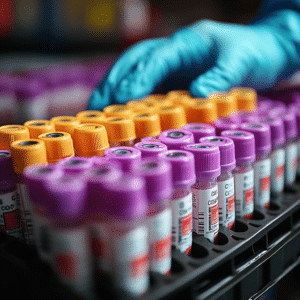Understanding Online Support Groups and Their Impact
Online support groups have emerged as crucial lifelines for parents grappling with the heartbreaking realities of a child’s addiction. These communities provide an environment where feelings of isolation morph into hope, understanding, and shared experiences. Research highlights that connecting with others facing similar challenges can reduce the emotional pain of addiction, creating a more cohesive path toward healing.
The explosion of technology has made support accessible to a wider demographic, democratizing healing. Online support groups differ from traditional in-person meetings, primarily in the flexibility they offer. The anonymity provided by these platforms often allows parents to express their feelings openly without fear of judgment from their peers or even their community. Creating a safe space for vulnerability is vital, especially when dealing with the sensitive issues surrounding addiction.
By joining online support groups, parents can engage from the comfort of their homes. The ability for parents to communicate at their own pace fosters a sincere form of participation. Studies have shown that individuals who participate in these communities report feeling more connected and less alone in their struggles. So, what does that look like in practice?
Top 7 Online Support Groups Making a Difference in 2024
1. SMART Recovery Online
SMART Recovery offers an evidence-based alternative to traditional 12-step programs. Their online platform features discussion forums, video meetings, and educational materials, emphasizing self-empowerment. By utilizing cognitive behavioral techniques, SMART Recovery resonates well with families actively seeking new strategies in coping with addiction.
2. In The Rooms
This platform stands out with its global reach. In The Rooms combines age-old recovery methods with modern-day technology, offering a mix of online meetings for 12-step programs, meditation sessions, and workshops. The diverse offerings allow participants to explore various recovery philosophies and identify what best suits their journey.
3. Alcoholics Anonymous (AA) Online
AA has managed to successfully adapt its foundational support structure in the digital realm. Virtual meetings focus on the 12 steps and community sharing. By taking its meetings online, AA has broken geographic barriers, allowing individuals from all backgrounds to unite and support one another.
4. Narcotics Anonymous (NA) Online
Similar to its predecessor, NA offers a schedule of virtual meetings. These meetings allow members to share their experiences and coping strategies within a supportive framework. The sense of community fostered through anonymity makes it fundamental for individuals hesitant to seek in-person help.
5. The Recovery Village
The Recovery Village’s online community offers a blend of peer support and counseling resources. They connect individuals to therapies, treatment modalities, and valuable sobriety resources. Their approach provides a holistic environment through online webinars and educational events addressing various addiction recovery aspects.
6. Sober Grid
Sober Grid harnesses the power of social connections in recovery. This social networking app enables users to connect with sober individuals in their area and build a dedicated support network. Features like community forums and live chats facilitate experience-sharing and encourage personal accountability.
7. Addiction Recovery Network
This platform provides comprehensive resources tailored to addictions of all kinds. From forums to informative blogs and podcasts, the Addiction Recovery Network creates an interactive and engaging atmosphere, helping individuals navigate their recovery journeys effectively.

The Science Behind Online Support Groups
The impact of online support groups isn’t just anecdotal; it’s backed by research. Psychological studies show that individuals who engage in supportive communities experience lower stress levels, enhanced coping mechanisms, and improved overall well-being. When parents share their experiences, it normalizes their feelings and strengthens their resolve.
The flexibility offered by online support groups tackles barriers like geographic location and stigma. Participants can engage on their terms, leading to authentically heartfelt interactions. According to a 2023 study published in the Journal of Digital Health, users often find it easier to disclose their struggles online rather than face-to-face meetings, showcasing the powerful role these platforms play in recovery.
Building Lasting Connections and Coping Strategies
One of the most compelling aspects of online support groups is the sense of connection that builds over time. Members frequently share experiences, both painful and uplifting, along with coping strategies that have worked for them.
This environment allows for immediate help with forums and chat features ensuring that support is just a click away. The rapid feedback loop encourages participants to remain involved, fostering a stronger commitment to their recovery plans.

Transforming Lives: Personal Stories of Connection
Online support groups have the power to shape lives dramatically. For instance, Mark lost his child to addiction and initially felt completely alone in his grief. Discovering an online support group provided him solace. Not only did he find understanding, but he also uncovered a renewed sense of purpose through shared experiences.
Similarly, there’s Sarah, a mother who was overwhelmed with her child’s addiction. By participating in an online group, she didn’t just receive emotional support; she gained practical tools and wisdom from peers who had walked similar paths. Their experiences reinforced her strength and highlighted the importance of community, even in adversity.
Final Thoughts on the Horizon of Online Support
As we look ahead, the importance of online support groups will undoubtedly increase. Their adaptability, ease of access, and capacity to forge meaningful connections are essential in helping individuals and families facing the struggles of addiction.
In today’s world, where the chaos of addiction often feels insurmountable, online support communities act as profound beacons of hope. They empower individuals to navigate their journeys with resilience. As we advance into 2024 and beyond, nurturing these digital support systems remains critical in fostering recovery and healing for everyone affected by addiction.
For those urgently in need of help, don’t hesitate to reach out to resources like Hotlines For addiction help or explore recovery Blogs that can guide you through this difficult time. With online support groups, you’re never truly alone.
Online Support Groups: Engaging with Connection
The Power of Community
Did you know that online support groups can provide a lifeline for those struggling with addiction? These virtual spaces allow individuals to connect with others who genuinely understand their experiences. Imagine chatting with someone who’s been through it all while sitting comfortably at home. It’s a game-changer! Just like having home alone Kevin grocery store moments, these groups can offer a practical, approachable way to tackle your feelings and challenges. Plus, it saves you from the hassle of face-to-face interactions, allowing you to interact at your own pace.
Expanding Horizons with Resources
Online support groups also open doors to invaluable resources. Have you checked out addiction podcasts? They’re a fantastic addition to any recovery journey, offering insights and stories that resonate deeply. Listening to experts and former addicts share their journeys can be both uplifting and enlightening. Not to mention, you can access critical information about substances, like how long does Vicodin stay in your system, which can help in understanding the scope of addiction and recovery itself.
Fun Facts and Connections
Here’s a fun nugget: people involved in online support groups often report feeling less isolated and more motivated. When you’re part of a community, you’re not just a statistic; you’re a vital part of something bigger. This emotional support can be as comforting as knowing you’ve secured California earthquake insurance in an unpredictable situation! Moreover, the creativity people bring into these spaces is quite surprising—just think about role-playing fun characters like lilith darkstalkers just to lighten the mood. It’s all about making those connections stick while fostering a space for healing and sharing.
In summary, online support groups not only provide a supportive setting but also enrich the recovery journey with various tools, knowledge, and a sense of belonging. Finding your tribe has never been easier—or more essential. Whether you’re looking for advice, camaraderie, or just a good laugh, these groups are transformative and, frankly, pretty spectacular in their ability to foster connection!

How do I find support groups in my area?
To find support groups in your area, start by chatting with your primary care physician or a mental health professional. They’re usually in the know about local resources. You can also hunt for local meetings on the websites of various support organizations.
What are the cons of online support groups?
Online support groups can be a bit tricky. You miss out on in-person connections and may not feel the same level of support as being face-to-face with others. Some folks also find it hard to open up when they’re not in a physical room with other people.
Are there any online support groups for depression?
Yes, there are online support groups specifically for depression, such as those offered by the Depression and Bipolar Support Alliance (DBSA). These groups provide a friendly space for sharing experiences and coping strategies, all for free.
What support groups are there for depression?
Support groups for depression can include peer-led sessions, community-based meetings, and online platforms. There are many types out there, each focusing on providing support and camaraderie for those facing similar struggles.
What is the difference between a support group and a therapy group?
The main difference between a support group and a therapy group is that support groups are led by peers offering mutual help, while therapy groups are usually led by a licensed therapist focusing on specific treatment goals.
Is there a group chat for people with depression?
There isn’t a specific group chat for depression established universally, but many online support platforms do have chat features or forums where individuals can connect and share experiences in writing.
Why do people use online support groups?
People use online support groups for a lot of reasons. They offer a sense of community, provide validation, and are often more accessible for those who may have difficulty attending in-person meetings.
How many people use online support groups?
It’s tough to pinpoint an exact number, but millions of people use online support groups worldwide, seeking connection and understanding from those who get what they’re going through.
How do online support groups help?
Online support groups can help by offering a safe space to share feelings, provide emotional support, and share coping strategies, all of which can make a real difference in someone’s journey.
Where to meet other depressed people?
To meet other depressed people, you can look into local community centers, mental health organizations, or online platforms like forums and social media groups that focus on mental health.
Who helps people with anxiety and depression?
There are various resources to help folks with anxiety and depression, including mental health professionals, hotlines like Lifeline, and local support groups designed to provide help and understanding.
Is depression the number one disability?
Depression is indeed one of the leading causes of disability around the world, affecting millions in their everyday lives and work.
Who do you talk to when you have no one?
If you feel like you have no one to talk to, reaching out to hotlines or online support groups can provide a listening ear and a sense of community, even if it’s not face-to-face.
Is there someone I can talk to for free?
Yes, there are places where you can talk for free, like crisis hotlines and online support chats that offer immediate help without any charge.
Who can I talk to if I feel depressed?
If you’re feeling depressed, consider reaching out to a trusted friend, mental health professional, or contacting a helpline for immediate support and guidance.
How do I find local community groups?
Finding local community groups can often be done through community centers, libraries, or online searches that highlight mental health resources in your area.
How do I find local users and groups?
To find local users and groups, consider using social media, community boards, or mental health websites to connect with others in similar situations who are looking to share experiences and support.
How do I find groups in service now?
If you’re asking about finding groups in service now, it might depend on what service you’re referring to. If it’s a local resource or platform, checking their website or contacting them directly is usually a good bet.
How to find a support network?
Discovering a support network often involves reaching out to friends, family, or local mental health resources and can be kickstarted by attending local events or joining online communities.




























